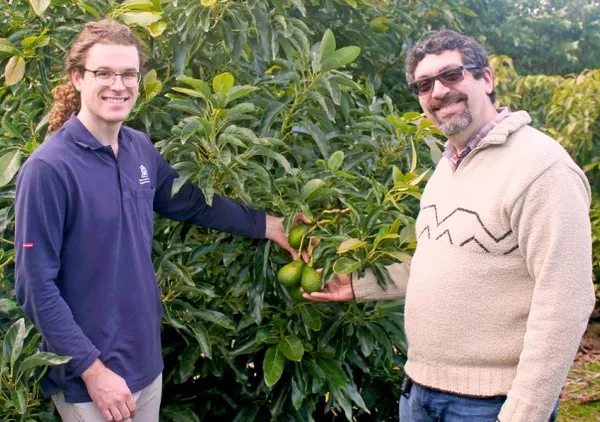The 2022 Western Australian Avocado Research Update recently showcased the latest advances in the State’s fastest growing fruit industry at Manjimup.
The Department of Primary Industries and Regional Development (DPIRD) hosted the event, with support from Hort Innovation’s Avocado Fund. DPIRD is working with industry on a range of research projects on growers’ properties and at its Manjimup Research Station to help achieve its potential.

Research scientist Declan McCauley provided the update with an overview of several projects to improve fruit quality and orchard performance.
Mr McCauley said there had been some compelling results from the Avocado Supply Chain Feedback project, funded by Hort Innovation and led by the Queensland Department of Agriculture and Fisheries.
“This project seeks to identify points in the avocado supply chain where interventions can be made to improve post harvest fruit quality, as well as to benchmark fruit quality around Australia,” he said.
“Eight consignments of WA Hass avocados were sent to Melbourne and Sydney markets last summer, where they were evaluated for quality by measuring the amount of body rots, stem end rots, bruises and other quality attributes.
“The results showed that WA avocado fruit quality was reasonable but identified the need to address the influence of longer supply chain time on fruit quality.”
Mr McCauley also discussed an avocado flowering project funded by the Agricultural Produce Commission, which is using temperature loggers and time lapse photography to observe and describe flower behaviour.
“This project will give us a better insight into avocado flower behaviour in the South West so management recommendations can be developed to optimise orchard potential,” he said.
Pest control was also on the Update agenda, such as a project on post harvest fungicide treatments to improve fruit quality in adverse harvest conditions, with Hort Innovation, which was undertaken in response to an industry request.
“The aim of this experiment is to determine if avocados can be harvested in wet conditions without the negative post harvest outcomes,” he said.
“The results show the post harvest fungicide application used in the experiment was effective in reducing body rots in wet harvested avocados.”
Research scientist Alison Mathews also gave an update on the final year of a three year project to examine how best to manage six spotted mite, in partnership with Hort Innovation.
“We’ve looked at a wide range of aspects of monitoring and management over the past two and a half years, including the role of predatory mites, the influence of nitrogen and case studies on various management approaches,” she said.
“The findings suggest that regular monitoring and effective spray application can minimise the number of miticide applications used.”
Senior research scientist David Cook provided an update on the first three years of research from a Hort Innovation co-funded project on the potential for native flies to be a supplementary pollinator to bees.
For more information: agric.wa.gov.au
